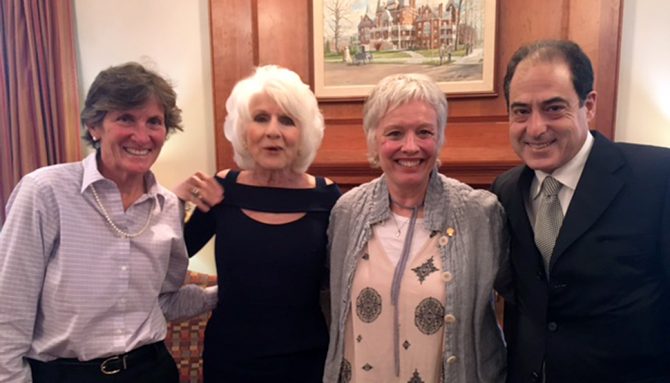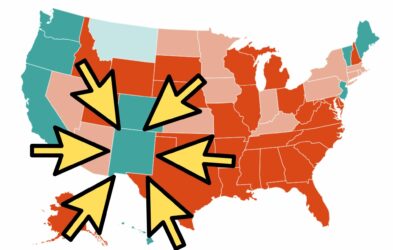Last month, our partner organization, Dying Right North Carolina, hosted its first conference, “Expanding Medical Aid in Dying in North Carolina: Choices and Challenges,” in Charlotte. Thanks to the tireless organizational work of Dying Right’s Executive Director, Ed Tiryakian, a participant in our Dignity50 State Leadership Incubator, the event attracted more than 80 attendees and featured presentations by a number of medical and legal experts whose work centers on end-of-life issues.
The keynote speaker was Barbara Mancini, the Pennsylvania nurse who in 2013 was arrested and charged with assisting her dying 93-year-old father with suicide. Her case was dismissed the following year, but her story—and the unnecessary suffering both Barbara and her father had to endure—is what inspired Ed to advocate for death with dignity. Her presentation about how her father “couldn’t achieve his end-of-life wishes because of an arcane law,” Ed says, helped humanize the day’s discussions about aid in dying and other end-of-life choices.
Building Relationships with Legislators
Ed is very pleased with his organization’s first conference but is most excited about what happened as an outgrowth of the conversations and connections that arose as he was organizing the event.
“I had written several letters to legislators who are supportive [of medical aid in dying] and ended up meeting with five legislators: four Democratic and one Republican, who represents the most socially conservative part of the state. Surprisingly, he listened very attentively and seemed to appreciate what we’re talking about. The mere fact that he’s not an adversary [on this issue] is very helpful.”

Ed Tiryakian with (from right) North Carolina State Representative Susan Fisher, Diane Rehm, and North Carolina State Representative Pricey Harrison.
Despite the substantial progress Ed and his fellow advocates have made, he knows that passing aid-in-dying legislation in North Carolina will be an uphill battle.
Republicans in the state Legislature have a veto-proof majority, and the socially conservative wing of the party informs its opposition to death with dignity. But Ed notes he has met several otherwise conservative Republican legislators who have seen first hand the pointless suffering of a loved one at the end of life and now view medical aid in dying as an important individual right.
He points out that medical aid in dying should not be viewed as a partisan issue, since terminal illnesses are party-blind. He also notes that both the ACLU and the Cato Institute support the legalization of medical aid in dying.
Countering Medical Society’s Opposition
In addition to building relationships with legislators, Ed is focused on influencing the North Carolina Medical Society to shift its position on death with dignity. The group first declared its opposition in 1992 and has reiterated its stance several times since, most recently in 2012.
“I wrote to them and said, so much has changed since you stated your initial opposition,” Ed says. “Now, we have data”—from Oregon and other states that have aid-in-dying laws—“to show that your fears [about abuse of the law] have not come to pass.”
Medical societies in California, Massachusetts, and Vermont have dropped their opposition to death with dignity in recent years. Ed hopes the turning tide will persuade medical professionals in North Carolina that the time is right to reconsider their stance.
Educating North Carolinians
Ed believes that continued public support for death with dignity, as measured in statewide and national polls, eventually will be impossible for politicians to ignore. In the meantime, Ed, in partnership with Death with Dignity National Center, will continue his work to educate North Carolinians at the grassroots.
“Being able to share literature from Death with Dignity [at the conference] was really useful,” Ed says. “Many people don’t know that this is a national movement with national reach. We are working with leaders of groups like [Dying Right North Carolina] in other states as well as a national group. It demonstrates that we have a strong support network.”

2 Comments.
Carolyn Cooper
I am very supportive of the Dignity in dying in North Carolina. My hope that North Carolina representatives will keep trying. It is our personal choice,
David Mallory
It is imperative to obtain reasonable legislation for
death with dignity in North Carolina, and all other states.
Let’s not have people suffer unnecessarily ay end-of-life issues.
David Mallory
Comments are closed.